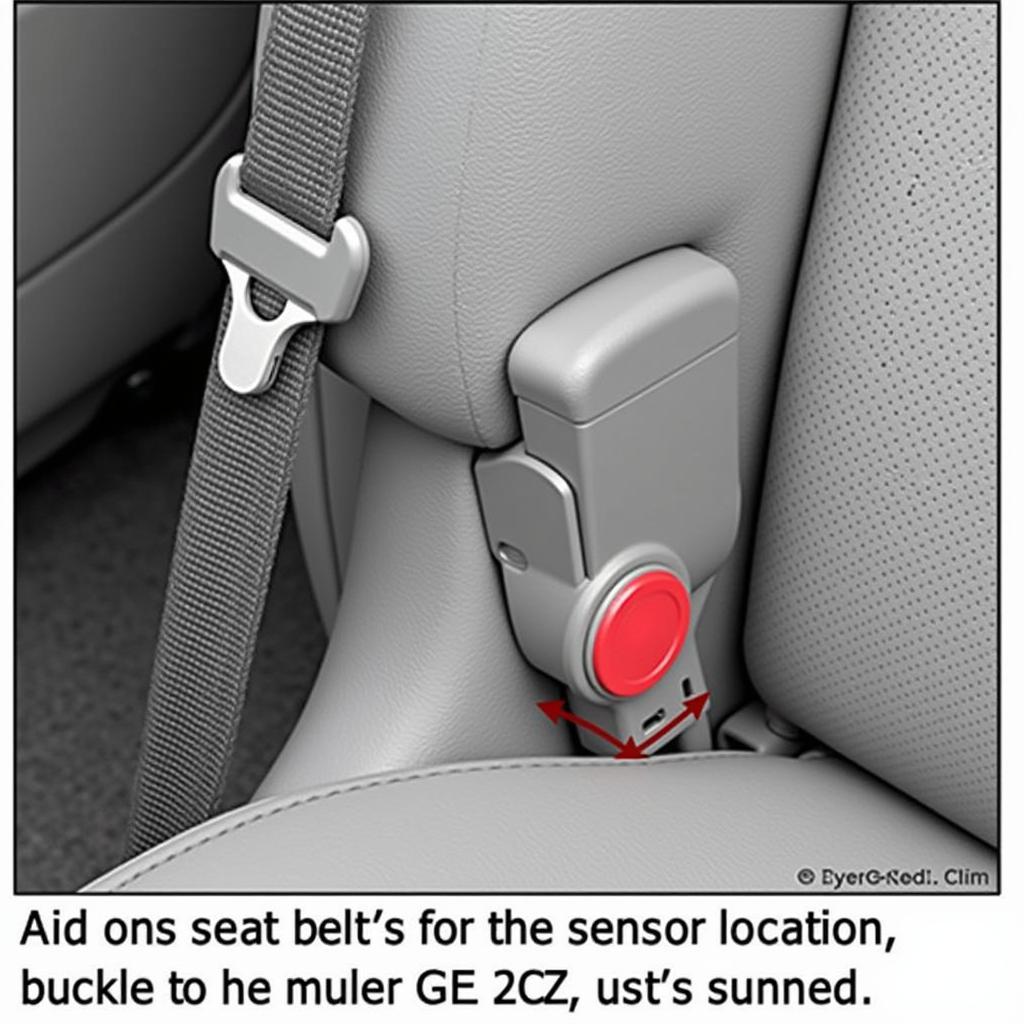If your Mercedes-Benz E320 (2000 model) displays a brake lining warning light, it’s crucial to address it promptly. This light indicates wear on your brake pads, signaling a potential safety concern. While the issue might seem daunting, understanding its cause and possible solutions can empower you to take control. This comprehensive guide will walk you through the common causes, troubleshooting steps, and potential solutions, including remote diagnostic options available.
Understanding Your E320’s Brake System and Warning Lights
Your E320 utilizes a sophisticated braking system designed for optimal performance and safety. At its core are brake pads, responsible for creating friction against the rotors to slow down or stop the vehicle. These pads naturally wear down over time. The brake lining warning light is your car’s way of communicating that the brake pads have thinned to a point where they require attention.
Common Causes of the Brake Lining Warning Light
While worn brake pads are the most common culprit, other factors can trigger the brake lining warning light:
- Worn Brake Pad Sensors: Your E320 has sensors embedded within the brake pads. These sensors trigger the warning light when they come into contact with the rotor due to pad wear.
- Faulty Brake Pad Sensor Wiring: A short circuit or damage to the sensor wiring can cause a false signal, illuminating the warning light even with sufficient pad life remaining.
- Low Brake Fluid Level: Brake fluid is the lifeblood of your braking system. A leak in the system can lead to low fluid levels, triggering the warning light.
- Malfunctioning ABS System: Though less common, a problem with your Anti-lock Braking System (ABS) can also trigger the brake lining warning light.
Troubleshooting the Brake Lining Warning Light
Before assuming the worst, a few simple checks can help diagnose the issue:
- Visually Inspect Your Brake Pads: If comfortable working on your car, carefully remove a wheel and examine the brake pads. Look for significant wear.
- Check Your Brake Fluid Level: Locate the brake fluid reservoir under the hood. Ensure the fluid level sits between the “Min” and “Max” markings.
- Listen for Unusual Noises: Screeching or grinding noises when applying the brakes often indicate severely worn brake pads.
When to Seek Professional Help
If you’re uncomfortable with DIY diagnostics or your initial inspection suggests a more complex issue, it’s time to call in the experts.
- Traditional Mechanic Visit: Schedule an appointment with a qualified mechanic specializing in Mercedes-Benz vehicles.
- Remote Diagnostic Services: Take advantage of advancements in automotive technology with remote diagnostic services. A certified technician can remotely access your E320’s computer system, pinpoint the issue, and guide you on the next steps.
Benefits of Remote Diagnostics and Software Solutions
Remote diagnostics and software solutions offer several advantages:
- Convenience: Avoid the hassle of driving to a mechanic and waiting for an appointment.
- Speed: Diagnostics are often completed faster remotely, allowing for quicker repairs.
- Accuracy: Advanced software can pinpoint issues that might be missed during a visual inspection.
- Cost-Effectiveness: Remote diagnostics can be more affordable than traditional mechanic visits.
Preventive Maintenance: Keeping Your Brakes in Top Shape
Prevention is key to avoiding unexpected brake issues:
- Regular Brake Inspections: Have your brake pads and rotors inspected at least once a year or as recommended in your owner’s manual.
- Brake Fluid Flushes: Brake fluid absorbs moisture over time, impacting braking performance. Flush your brake fluid every 2 years or as recommended.
- Quality Brake Pads: Invest in high-quality brake pads from reputable manufacturers for longer lifespan and better performance.
Conclusion
Addressing the brake lining warning light in your Mercedes-Benz 2000 E320 is essential for your safety and the vehicle’s longevity. By understanding the potential causes and utilizing the available diagnostic tools, including remote services, you can resolve the issue efficiently and confidently get back on the road. Remember, preventative maintenance is key to avoiding unexpected brake problems and ensuring the optimal performance of your E320’s braking system.

